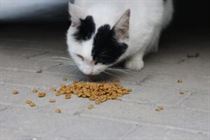There is no one simple answer to this question, despite the simplicity in which the question is presented — cats are complex animals, and will use their vocalisation in order to signify many different things, not just one. Even a single “meow” could have different interpretations — which is considerable when you take into account the other vocalisations cats make (purrs, growls, hisses, etc.). This article will therefore attempt to only list some of the more prominent interpretations of a cat’s “meow”.
Reasons to Meow
Need for Affection

One of the primary reasons why cats meow is that they want your attention. Now some cats are more independent than others, but some will truly crave human attention, and even the independent ones will sometimes come around looking for some interactions from time to time. If the meowing is within a tolerable level and you don’t mind the occasional lick, whisker nuzzle and lap time, then this meowing is definitely not a problem.
Sick Or In Pain

Cats also meow because they are sick or in pain, which you might be able to pick up on if you pay close attention to how your cats vocalise this condition. They might have hormonal issues, kidney problems, fleas, or an injury. So always listen carefully when your cats are ‘speaking’ to you.
Hunger
Cats will also meow when they are hungry. You should be able to tell if this is the reason just be knowing your cat’s little habits, but do not succumb to this pressure and feed your cat every time they do so, or you will end up with an obese cat.

Managing Constant Meowing
Some cat species meow a lot more than others (e.g. Siamese cats), but all do it to get your attention. And while most just do it when they want something in particular, some cats just meow constantly and for no apparent reason. This can be a major problem, especially if it occurs at night or early in the morning when you are trying to sleep.
Firstly, make sure that you cat is not meowing due to an illness or medical problem, as this can often be the case. Once that as been ascertained, you may try out a series of actions to see if the constant meowing stops. Since cats do not just meow to annoy you (for most cats, at least), carrying one or more of the following actions should allow you to zero in on the problem.
Feed On A Regular Basis

Try feeding your cat at set times/regular intervals so they can anticipate when they are going to eat next. You can also try leaving dry cat foods and biscuits in their bowls so that your cat can nibble whenever they get hungry. This, however, is only advisable when your cat does not have a tendency to over-eat.
Quality Time & Play Time

As mentioned earlier, cats may meow because they would like some affection or play time with their pet parents. Stroke and play with your cat often to keep them from feeling lonely or neglected, which tend to be strong reasons for constant meowing.
Condition Them Through Discipline

Do not let your cats drive you round the bend with excessive meowing — take charge and show them who’s the boss! You can choose to:
- Ignore them, which may or may not eventually make them stop
- The old favourite of squirting them with a water spray
- A firm “No” or a clap of the hands
Cats will eventually realize that constant meowing gets them nowhere. Once their constant meowing has been stopped or reduced, remember to introduce positive reinforcement methods such as praising and treats in order to condition this new behaviour.
Japanese article: 猫ãŒé³´ãç†ç”±ã¨ã¯ï¼ŸçŒ«ã®é³´ã声ã‹ã‚‰æ°—æŒã¡ã¨æ„味をç†è§£ã—よã†
